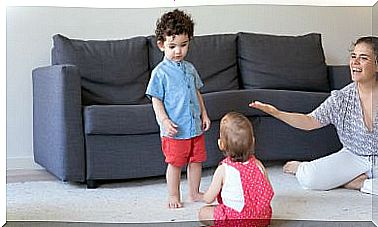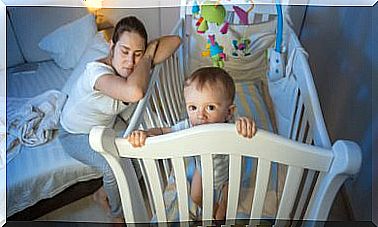How To Avoid Yelling At Home?

How to avoid yelling at home? This is a common question from many families. It turns out that what started out as a quiet conversation can suddenly turn into a loud, screaming discussion.
Despite the fact that this situation has become very everyday, it is possible to enjoy a certain degree of tranquility at home, just as it is possible to avoid the screaming that can cause harm to the family.
6 practical tips to avoid yelling at home
Generally, misunderstandings and yelling arise from lack of good communication in the family and from not knowing how to listen.
1.- Recognize the problem
It is essential for parents to recognize that stress and bad mood are highly prevalent when yelling occurs. But the only way to deal with that situation and change it is to be reasonable and acknowledge the problem.
Next, you must find the solution and learn to listen to the different opinions of the family.

2.- Acquire a commitment
Making a family commitment to stop yelling and speak respectfully may be the solution. Explain to the children and adolescents at home that everyone must learn not to scream, including you, the parents.
But each one needs the help of the other, therefore, you must make an effort and be patient. If you do this, you will soon get into the habit of speaking without raising your voice too much.
3.- Take your time to calm down
A section of the American Psychological Association states that anger is a totally normal and generally healthy human emotion. However, what you should avoid is giving vent to anger. If you feel like you’re about to explode and you’re going to yell at your family the first thing that comes to mind, take some time to calm down first.
It is best to take a deep breath and head to a quiet place in the house until you calm down. In a moment of anger this will not be easy for you, but think that with effort the screaming in the home will stop.
4.- Before speaking, think about what to say and how to say it
Instead of giving an answer with a very high tone of voice to silence the other person, why not put yourself in their place and listen without attributing bad reasons? Avoiding sarcastic comments or hurtful accusations will allow the other person to muffle the yelling.
In addition, it is vital to teach children to express their emotions and frustrations calmly and without the need to yell.
5.- Immediately apologize
Don’t let negative feelings make you lose sight of the goal: avoid yelling at home. If you have been carried away by anger and have yelled at one of the family members, it is best to accept some of the blame and ask for forgiveness.
On the other hand, if your child has yelled, resist the urge to yell at him as well. Respond in a calm, reassuring tone, setting an example by speaking gently in an appropriate but firm tone.
You can tell him that you won’t hear him until he stops yelling. Also, you should accept their apologies patiently.
6.- Avoid adding fuel to the fire
If it has been a difficult day for the family, any spark can ignite the fire. In these situations, avoid negative comments that can cause yelling and misunderstandings. Find a place or activity that calms your spirits and makes you feel better.

Discipline your child without yelling
Yelling at your child after misbehaving may seem like the quickest discipline. But this can also be the quickest way to aggravate a child’s behavior problems, since you are teaching the little one to handle frustration through yelling.
To avoid yelling at home, you should establish clear and simple rules that your children can follow. Talk calmly with your children about the rules and use resources to help them remember them. A good idea is to make a list and post them in a visible place.
Explaining in advance the consequences of not following the rules will contribute to the better behavior of children, especially if they are adolescents, since at this stage they tend to yell more when they are frustrated.
Remember: yelling seems harmless, but it can cause serious emotional damage to the family; to avoid them at home you will need self-control, patience and empathy.










